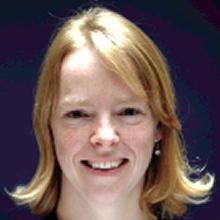Floods, people and bandals in Bangladesh
Competitive studentships available. Earth Surface Dynamics and Economy, Society and Space
This topics may be eligible for ESRC or Webscience DTC funding. Any DTC funding is not yet confirmed, but we would still welcome applications from interested candidates.
Supervisors: Prof Steve Darby, Prof Paul Carling, Dr Kanchana Ruwanpura
Bangladesh is no stranger to floods and cyclones, with concomitant implications for its populace. The coincidence of very high population densities crammed into the riparian corridor of one of the world’s largest rivers means that the high rates of bank erosion result in significant social and economic impacts. Particular problems concern the impacts of river bank erosion on the loss of land and agricultural productivity, damage to infrastructure, and threats to flood embankments. Consequently bank erosion represents a significant barrier to development on economic grounds alone. The loss of land is a key issue for the rural poor, as it can force agricultural workers and/or subsistence farmers to seek alternative employment in diverse locations, with attendant problems of social adjustment and the breakdown of family cohesion. In Bangladesh this problem is so severe that it is estimated that since 1980 approximately 1 million people have been displaced to urban areas by bank erosion.
There is, therefore, a strong demand for effective erosion management techniques, which takes into consideration the local socio-economic and environmental conditions. Often these strategies have tended to rely on the use of hard engineering, but such approaches are problematic for various reasons. Key for rivers in the Global South is the issue of cost, with hard engineering countermeasures typically precluded on economic grounds. But hard engineering techniques have other disadvantages too, for example they are a major source of carbon emissions. In contrast, ‘soft’ solutions often utilize local materials and are based on traditional methods that have evolved over many centuries. One such structure is the ‘bandal’.
Bandals are groyne-like wooden-frames with bamboo mat screens. The design is permeable to flow, permitting a significant fraction under the screen and inducing flow separation at the tip, thereby inducing deposition along river banks that were previously erosional. Bandals may offer a number of advantages over traditional engineering approaches that might render them appropriate for use in Bangladesh. Primarily they are affordable. In addition, bandals may be a net carbon sink due to the sequestration of organic matter within river sediments deposited in their lees. Finally, in relying on local materials and utilizing local labour-intensive construction, bandals potentially offer opportunities for work in local communities and help redress socio-economic stresses in the community. Yet, there may also be areas of tensions which are exacerbated or created through the social and economic benefits for the relevant/affected communities.
Unfortunately, the state of the art is such that the situations in which bandals can be used effectively are ill-defined, and the true extent of postulated social, economic and carbon benefits are also poorly constrained. This studentship via interdisciplinary study between the physical and social sciences therefore aims to identify the extent to which bandals can provide an effective, sustainable, approach to river bank protection along large rivers in Bangladesh. It will specifically aim to address the following points:
1.Through literature review and field surveys determine the social, economic and environmental consequences of frequent river flooding and bank erosion to arrive at the human costs of these environmental events.
2.Use literature and field surveys to determine the economic costs and carbon ‘footprint’ of bandals in relation to other bank protection measures employed in Bangladesh. Such a review and survey will also aim to understand and analyze existing social stress and conflicts within and between communities living nearby river banks.
3.Undertake laboratory flume and field investigations to determine the optimal design criteria for bandals (dimensions, porosity, deflection angle, spacing, etc) in relation to different morphodynamic units identified along the studied rivers.
4.Explore the social, economic and cultural impacts of bandals through qualitative fieldwork and social surveys. Specifically evaluate how bandals: a) protect community land, infrastructure and facilities, b) enhance a community’s ability to remain in locations they have conventionally habituated without displacements, and; c) provide local work opportunities and sustainable livelihood strategies.
5.Synthesize the findings from the preceding into an overview of the extent to, and specific circumstances in, which bandals offer sustainable solutions to river bank erosion problems. This synthesis will also hone in and elaborate upon the qualitative findings with regards to the socio-economic dynamics and everyday realities of relevant and affected communities in Bangladesh.
The qualified and selected student will be expected to take language training in Bangla/Bengali (unless there is prior knowledge of the subject) during the time of her/his PhD study and before embarking upon fieldwork. This language study is likely to have an additional ESRC stipend attached; and prior to starting the qualitative fieldwork phase, the student will also need to undergo an ethical review panel.
Candidates must have or expect to gain a first or strong upper second class degree Human or Physical Geography with evidence of units taken in both human and physical geography topics, or else a first degree in a natural science subject with a second degree in a social science topic or vice versa.
Details on how to apply are available from Julie Drewitt, Graduate School Administrator, School of Geography University of Southampton, SO17 1BJ, Telephone 023 8059 2216, email J.A.Drewitt@soton.ac.uk. Informal enquiries may be made to Prof. Steve Darby (S.E.Darby@soton.ac.uk) and Dr. Kanchana N. Ruwanpura(k.n.ruwanpura@soton.ac.uk).
